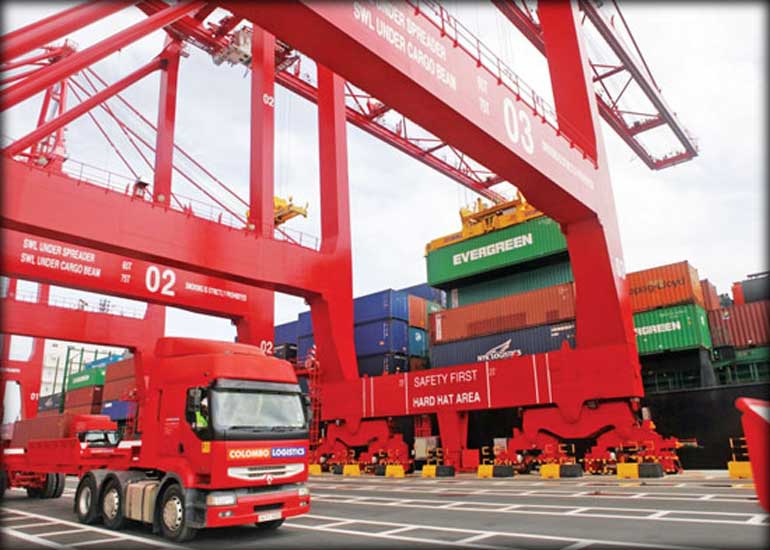Friday Feb 20, 2026
Friday Feb 20, 2026
Monday, 6 July 2015 00:00 - - {{hitsCtrl.values.hits}}

Colombo International Container Terminals Ltd., (CICT) the first and only deep-water terminal in the whole of South Asia, that is capable of handling the largest ultra-large container carriers afloat, with their super infra-structure and massive ship to shore gantry cranes, has now taken the initiative to provide leadership for the ‘green-port’ concept, in the Port of Colombo.
Colombo International Container Terminals (CICT) is owned and managed by China Merchants Holdings International (CMHI), who is the world’s second largest global terminal operator. CMHI also won the 2015 Terminal Operator of the Year Award at the awards ceremony held in London earlier this month. This award is made based on many performance based criteria, including the initiatives taken by the terminal operator to reduce green house gas emissions and reducing the carbon foot print.
This is an era where all industries are exploring possibilities of protecting nature and the environment. The initiative taken by CICT to reduce the emission of C02 in the Port of Colombo will benefit the port industry as a whole. This first step will be the driving force to give leadership to the Port of Colombo as the flag bearer in the South Asia region to focus on the reduction of green-house-gases.
With expert technical guidance from their parent company CMHI, the engineering team at CICT has already commenced work on converting the full fleet of their diesel operated rubber-tyred gantry cranes to E-RTGs. With an initial capital expenditure of over $ 10 million, this initiative taken by CICT has demonstrated their commitment to reduce greenhouse gas emissions in the Port of Colombo and the maritime industry as a whole. No doubt this development would send the signal to all stakeholders in the industry, the importance of paying attention to this critical factor. A spokesman for CICT said that they believe in leading from the front on the reduction of greenhouse gas emissions and care for the environment. This is at a time when some stakeholders in this global industry are still said to be driven by costs rather than ‘green ethics’.
From the very inception of CICT going into operation in the year 2013, which was just under two years ago, CICT had already made the first step towards addressing environmental concerns by specifying and installing state of the art hybrid-diesel engines for the full fleet of the rubber tyred gantry cranes. These engines had minimal impact on the emission of environment impacting gases. However, with the serious emphasis on addressing and reducing environmental damage on a continuous and sustainable basis in the maritime and port industry, CICT decided to make further significant capital investments in their contribution to reduce green-house gases.
Conversion from hybrid-diesel to E-RTG
The new technology will convert the existing hybrid-diesel diesel driven rubber tyred gantry cranes to operate on electricity from the national grid. This provides for the environment friendly terminal operation, as practised by many similar terminals in the world. Under an E-RTG operation there will be zero Co2 emissions and noise pollution which is another important aspect from the terminal employee health and safety perspective. Whilst enhancing operational efficiency there will be positive impact on productivity for the benefit of all port users.
Reduction in carbon dioxide emissions
According to a bulletin issued by the Hong Kong Petroleum Corporation, the CO2 emission coefficient of diesel fuel is 3.1 kg/litre and the CO2 emission coefficient of electric power is 0.637 kg/kWh. Based on the total container throughput handled at CICT during the year 2014, this initiative could bring in a significant reduction in CO2 emissions running into thousands of tons. The actual reduction is envisaged to be 45% of current emissions.
Port of Colombo benefitting from CMHI technical expertise
Container terminals currently confront many major challenges globally, including how to deal with increasing energy costs and the requirement that they meet even stricter environmental standards, while striving to realise the green port vision.
With this background CICT has a significant advantage in having the know-how of implementing global best practices through their parent company China Merchants Holdings International (CMHI) who is managing the terminal as part of their global container terminal management business portfolio. The Port of Colombo stands to benefit greatly from this initiative as it will be one of the first ports in South Asia to fast track the ‘green port’ concept.